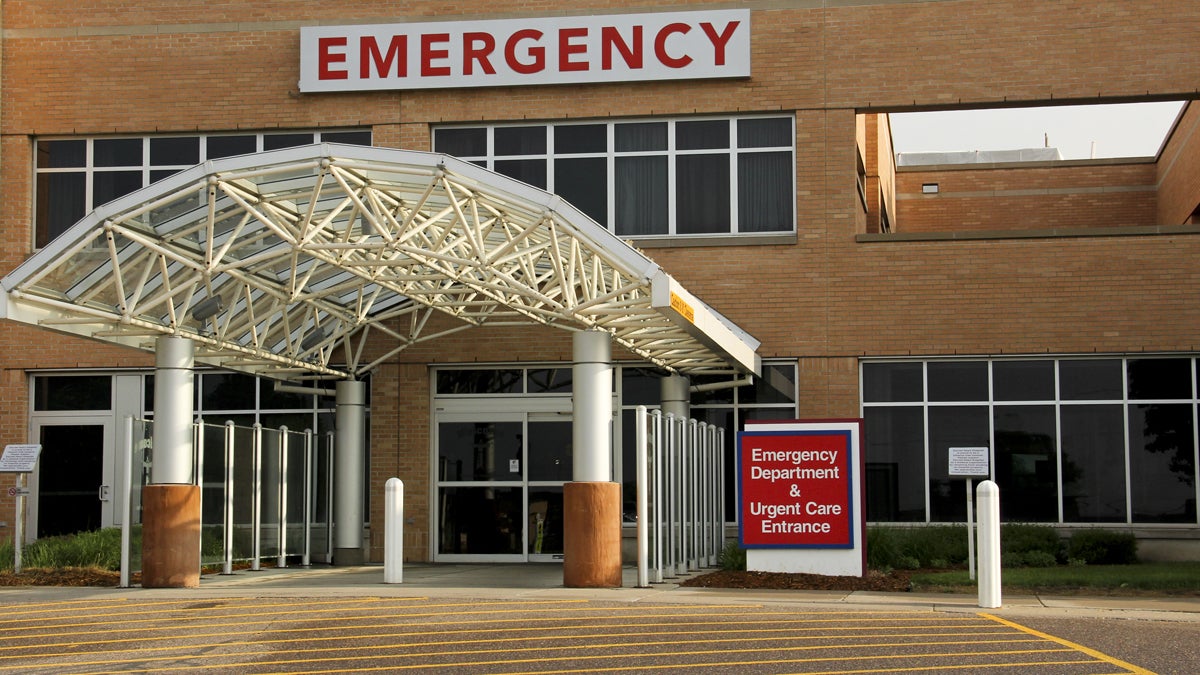N.J. hospitals face penalties for high readmission rates
 Photo via ShutterStock)
" title="ssemergencyroomx1200-1" width="1" height="1"/>
Photo via ShutterStock)
" title="ssemergencyroomx1200-1" width="1" height="1"/>
(Photo via ShutterStock)
Medicare has issued its third round of penalties to hospitals with high readmissions rates. This year’s average fine went up although the average readmission rate went down nationally, according to a new analysis from Kaiser Health news.
Just about all New Jersey hospitals are facing fines this October, but industry leaders say that doesn’t tell the whole story.
In hopes of getting hospitals just as focused on patient health outside the hospital, the government is reducing its reimbursements to health centers for having too many Medicare patients coming back within a month. For three years they have been tracking treatment of heart failure, heart attacks, pneumonia and — new this year — lung ailments and chronic bronchitis.
Aline Holmes, senior vice president for clinical affairs at the New Jersey Hospital Association, said health centers have responded, shifting their approaches.
“I think it has changed,” she said. “It’s not the four walls of the hospital anymore. They have to go in and work with their communities to make sure there are resources and supports in their communities to help people stay home and not have to return to the hospital.”
New Jersey hospitals are also part of a national pilot aimed at reducing readmissions, Holmes said.
This year, 98 percent of hospitals in New Jersey received a penalty of some amount, according to the Kaiser analysis. The exceptions were certain cancer centers and specialty facilities that are exempt. That’s a higher percentage than any other state.
Nationwide, three-quarters of hospitals are being penalized, including 72 percent in Pennsylvania and 86 percent in Delaware.
Hospitals can’t be entirely responsible for high readmission rates, Holmes said. Community socioeconomic profiles play a big role but aren’t factored into the penalties. And New Jersey is also the most densely-populated state, she said.
Even so, Holmes said, New Jersey hospitals are making a lot of progress in curbing readmissions. Despite higher penalties, overall readmission rates have gone down in the state from about 21.8 percent four years ago, to about 18.8 percent as of last year.
“It’s significant,” she said. “A couple things we’ve found is the importance of someone seeing the patients within three to 10 days after discharge from the hospital.”
When hospitals can make sure a patient checks in with a doctor or other health worker after leaving, there’s often no need to come back, Holmes said.
The Kaiser analysis found that 39 states nationwide are slated to receive the highest penalty — a 3 percent reduction in Medicare reimbursements. Three hospitals in Pennsyvlania made that list, including Pennsylvania Hospital in Philadelphia, Physician Care Surgical Associates in Royersford, and Coordinated Health Orthopedic Hospital in Bethlehem.
Calls were placed to all three hospitals for comment, but none responded.
*10/06/14 Update:
In response to Pennsylvania Hospital receiving the highest penalty of 3 percent, Dr. PJ Brennan, chief medical officer, said he and hospital leaders were disappointed.
“It’s certainly higher than we’d like to see,” he said. “We’re getting under that. It’s a little bit of a surprise to us because all of our hospitals are deeply engaged in preventing readmissions.”
Brennan says that includes establishing more intensive continuity services outside the hospital. He maintains academic medical centers are at a disadvantage, as they often serve as regional referral centers. That makes it more difficult to provide that continuity of care across a broader geographic area, he says, and means that the health system as a region has more work to do. Overall, Brennan says the hospital’s readmission rates have gone down and he thinks the penalties will be much lower next year.
Thomas Jefferson University hospital, another major academic medical center in Philadelphia, also received a high penalty of 2.25 percent, compared to .35 percent the year before. Dr. Rachel Sorokin, chief of patient safety and quality officer, said in an emailed statement that the hospital is working hard on its readmissions program:
“We have been working closely with our skilled nursing and rehabilitation facilities and have developed standardized approaches with them to improve communication and care. We are working hard to educate our patients about their health after hospitalization and have increased home care services for patients who need more support. We have boosted communication between our physicians in the hospital, ER, and medical offices, and we schedule an office appointment shortly after discharge for appropriate patients. We also have highly skilled medical case managers who make frequent outreach phone calls after discharge to make sure our patients are doing well. In addition, we are developing innovative systems to care for our patients after discharge.”
——————-
This story is part of a reporting partnership that includes WHYY , NPR and Kaiser Health News.
——————-
WHYY is your source for fact-based, in-depth journalism and information. As a nonprofit organization, we rely on financial support from readers like you. Please give today.

